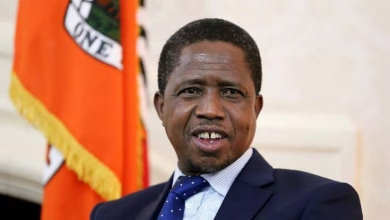The 74th session of the WHO Regional Committee for Africa commenced on Monday, August 26, in Brazzaville, Congo.
Over the course of five days, nearly 1,000 delegates, including WHO Director-General Tedros Adhanom Ghebreyesus and health ministers from 47 member states, will gather to discuss pressing health issues.
A major focus of the session is the global Mpox epidemic. The WHO Regional Director for Africa stressed the importance of a revised approach to managing Mpox and highlighted the extensive support available for member states to formulate effective strategies.
The continent has long faced high mortality rates from diseases such as malaria, meningitis, and cholera. Joy Phumaphi, executive secretary of the African Leaders Malaria Alliance, underscored Africa’s experience in handling epidemics, including Mpox.
The WHO recently declared a global emergency due to a new and more lethal strain of the Mpox virus. The Democratic Republic of Congo, at the crisis’s core, is actively participating in the Brazzaville meeting.
On August 26, the WHO introduced a Strategic Preparedness and Response Plan to address human-to-human Mpox transmission, seeking $135 million in funding through February 2025. Major international health organizations have pledged additional support to manage Mpox outbreaks in Africa.
On Tuesday, at least 14 African countries and health partners committed over $45 million to the WHO Investment Round, a new initiative aimed at securing sustainable financing for the global health organization. This support was announced during the 74th session of the WHO Regional Committee for Africa.
The WHO stated that this funding will enhance its ability to fulfill its mission and advance key objectives for promoting, providing, and protecting global health and well-being.
WHO Director-General Tedros Adhanom Ghebreyesus expressed gratitude for the support, stating, “I thank our African Region Member States for actively supporting WHO’s first Investment Round to mobilize predictable and flexible resources needed for our core work over the next four years.” He emphasized that sustainable funding will better enable the WHO to assist countries in building healthier and more resilient populations.
Countries that pledged include Botswana, Cabo Verde, Chad, Congo, Ethiopia, Mauritius, Namibia, Niger, Rwanda, Senegal, Seychelles, South Africa, Tanzania, and Gambia.
Matshidiso Moeti, the WHO Regional Director for Africa, noted the importance of a robust and predictably funded organization to address various health threats and support disease prevention based on substantial evidence. “Every pledge and every partnership counts. Together, we can achieve a future where health and well-being are accessible to all,” she said.
The WHO officials believe that with a fully and sustainably funded budget over the next four years, the organization will be better equipped to address emergencies and outbreaks that threaten lives and global health security.
Additionally, delegates at the forum on Tuesday nominated Tanzania’s Faustine Engelbert Ndugulile as the next WHO Regional Director for Africa. Ndugulile, who defeated candidates from Niger, Senegal, and Rwanda in a closed vote, will replace Moeti, whose second five-year term is ending.
His nomination will be reviewed for appointment at the 156th session of the WHO Executive Board in February 2025 in Geneva, Switzerland.

